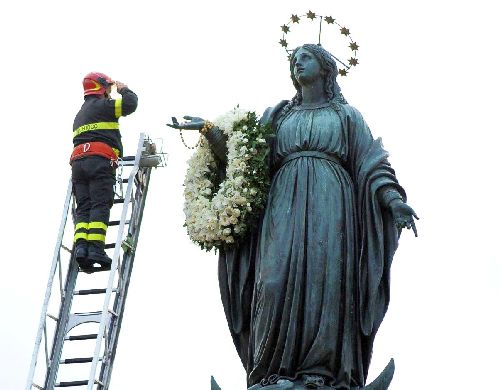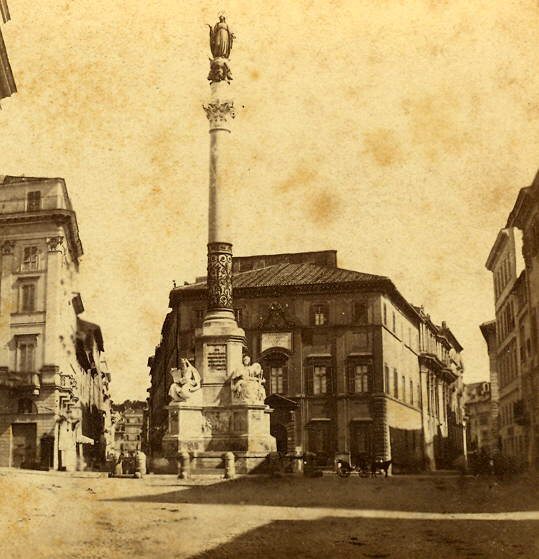
Column of the Immaculate Conception in Piazza di Spagna (Rome), photo taken circa 1880.
The monument was inaugurated on December 8, 1857, three years after the proclamation of the dogma.
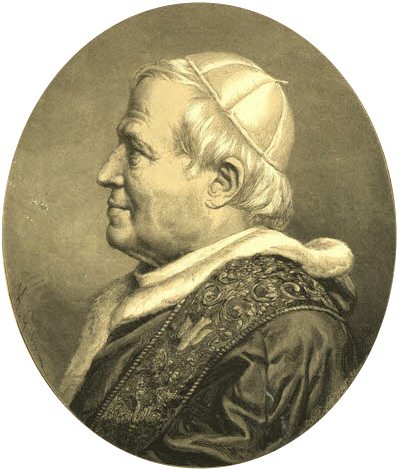
From Saint John Bosco’s work Fatti ameni della vita di Pio IX raccolti da pubblici documenti [Pleasant Episodes in the Life of Pius IX Taken from Public Documents”], Turin, 18711
The declaration of the Dogma of the Immaculate Conception is one of the most remarkable events in Church history. A superb column erected in Piazza di Spagna, in Rome, forever memorialized this fact that so glorified Mary.
Four colossal statues of Moses, David, Ezechiel and Isaias surround the column, and their prophecies call to mind the great mystery defined by Pius IX.
That pedestal is adorned with two bas-reliefs. One represents Saint Joseph being warned by the Angel during his sleep about the mystery of the Incarnation; the other shows Pius IX proclaiming the Dogma of the Immaculate Conception.
Under the first bas-relief are written the simple but sublime words of the angelic greeting: “Hail, full of grace, the Lord is with thee, blessed art thou among women.”
On the opposite side one reads:
Mariae Virgini Genitrici Dei
ipsa origine
ab omni labe immuni
Pius VIIII. P. M.
Insignis praeconii
fide confirmata
Decreto Q. D. S. VI ID. DEC.
AN. MDCCCLIIII.
PONEND. CURAVIT
AN. SUI PRINCIP. XII.
“To the Virgin Mary, Mother of God, immune from all stain from her inception, Pius IX, Sovereign Pontiff, after having confirmed the faith in this outstanding privilege with his decree of eighth December, raised this monument at the expense of the Catholic universe in the 12th year of his Sacred Pontificate.”
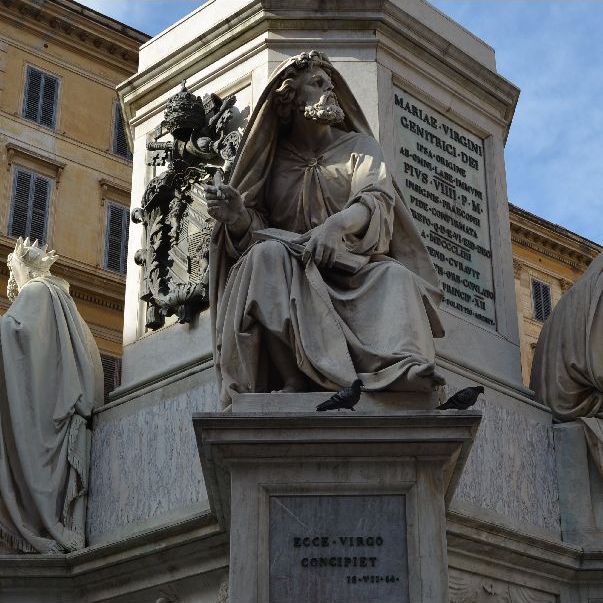
Isaias’s statue has as a caption these words of the prophet: “Ecce Virgo concipiet – Behold a virgin will conceive” (Isa. 7:14).
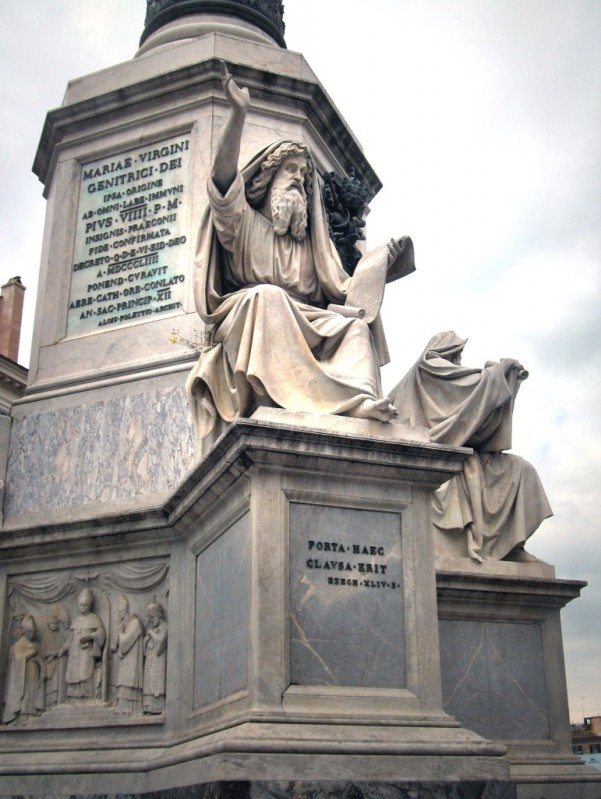
Under the pedestal of Ezechiel’s statue one reads: “Porta haec clausa erit – This door will remain closed” (Ezech. 44:2).
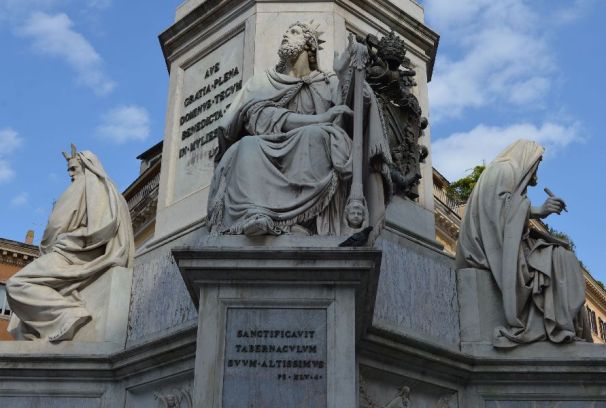
Under the pedestal of David’s statue: “Sanctificavit tabernaculum suum Altissimus – The Most High has sanctified His tabernacle” (Ps. 65:5).
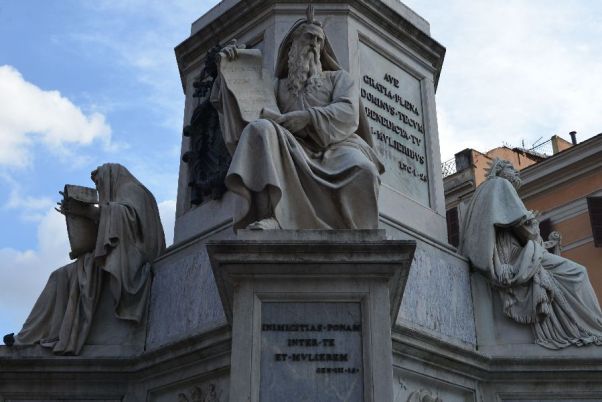
Moses opens the book of Genesis and prophesies the eternal struggle between heaven and hell: “Inimicitias ponam inter te et muliere – I will put enmities between thee and the woman” (Gen. 3:15).
Now, the serpent’s enemy is not only Mary but also the Church, of which the Virgin is the embodiment. “The Church too is the seat of Wisdom” as is the Mother of Christ, since, as Tertullian says, a Christian is another Christ.
Three Reasons the Church’s Enemies Hate the Immaculate Conception
Nowadays, that enmity is at its peak, the fight rages on. But the winning foot that crushes the serpent’s head presages a victory as glorious as it is infallible.
We [Saint John Bosco refers to himself] have had the good fortune to visit, in the church of Saint
Bonaventure [in Rome] the room of Blessed [now Saint] Leonard of Port Maurice who predicted this triumph in a now famous letter.
The example of Rome, mother and mistress of all churches, sparked worldwide ardor and zeal among the children of Mary. We have seen germinate a huge number of monuments, altars, shrines, churches and statues, all designed to perpetuate the memory of the great act of 8 December 1854 [proclamation of the Dogma of the Immaculate Conception]; and the erection of the column by Pius IX in the Piazza di Spagna was also the signal to which the whole orb quickly responded with a wealth of monuments that spontaneously covered the world.2
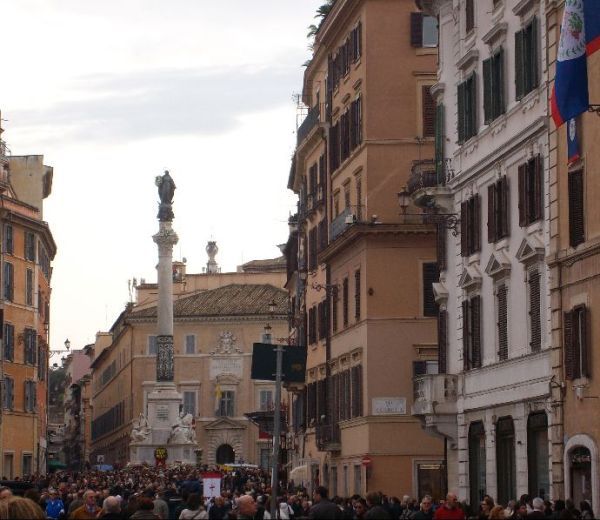
On December 8, the statue of the Immaculate Conception in Piazza di Spagna, Rome, (photos above and below) is especially adorned by the faithful.
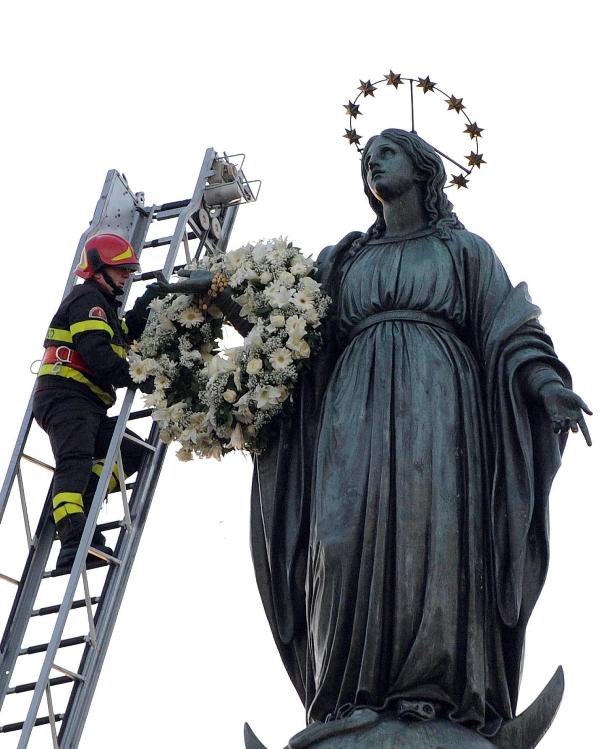
Early in the morning of the same day, firefighters place a wreath on the arm of Our Lady of the Immaculate Conception (photo above), which remains there until the same feast the following year. After having place the wreath, he then salutes her (photo below).

